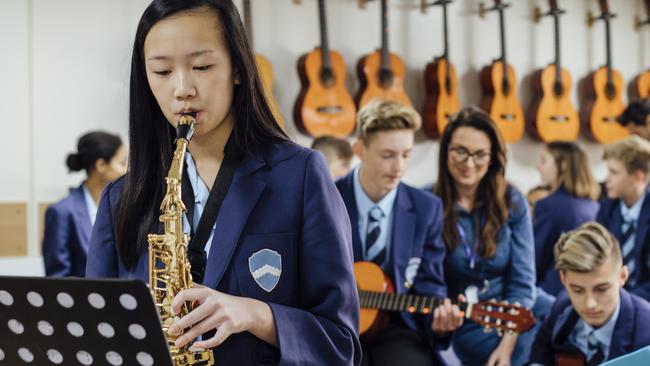Music helps to keep ageing brains in tune
Parents wincing at the screech of their children’s violin strings can take comfort from suggestions that music lessons have long-term health benefits.

Parents wincing at the screech of their children’s violin strings can take comfort from suggestions that music lessons have long-term health benefits.
Researchers found a link between taking up an instrument early in life and improved cognitive skills in old age after studying a group of Scottish octogenarians.
Children and teenagers with experience of playing a musical instrument showed greater lifetime improvements in thinking ability than those with no such background.
Researchers from the University of Edinburgh have found that benefits ensued even when accounting for socio-economic status, years of education, childhood cognitive ability and health in older age.
The team behind the research said while more study was required, the early signs were positive. “As we and others search for the many small effects that might contribute towards some people’s brains ageing more healthily than others, these results are worth following up,” said Ian Deary, an emeritus professor and former director of the university’s Centre for Cognitive Ageing and Cognitive Epidemiology.
The researchers found that of 366 study participants, 117 reported some experience of playing a musical instrument, mostly during early childhood and adolescence. They had most commonly played the piano, but other instruments included the accordion, bagpipes, guitar and violin.
Participants were part of the Lothian Birth Cohort 1936, whose members were born in 1936 and took part in the 1947 survey, in which physical and mental functions were periodically assessed.
At intervals from the age of 11, they took a standardised cognitive ability test that covered verbal reasoning, spatial awareness and numerical analysis.
Those who retook the test at the age of 70 were questioned about their lifetime musical experiences. The researchers used statistical models to look for associations between an experience of playing a musical instrument and changes in thinking skills between the ages of 11 and 70.
They said that their findings provided evidence that playing an instrument was associated with detectable lifetime cognitive benefits. “These results add to the evidence that activities that are mentally challenging, such as learning to play a musical instrument, might be associated with better thinking skills,” said Judith Okely, a psychology lecturer at Edinburgh Napier University.
“We have to emphasise that the association we found between instrument-playing and lifetime cognitive improvement was small, and that we cannot prove that the former caused the latter,” Professor Deary said.
The Times



To join the conversation, please log in. Don't have an account? Register
Join the conversation, you are commenting as Logout